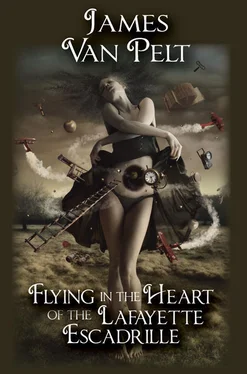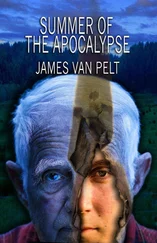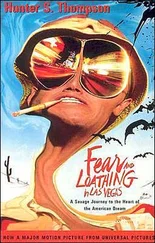I bit my tongue. My friends were involved in efforts to save the rainforest.
Soon the road climbed as we left behind both the fields and jungle, although vegetation choked every little valley and ravine. Savanna grass covered the hills. Dispirited telephone poles drooped with power lines for many miles, but they vanished behind as the car clattered on. We passed through villages, houses no more than plywood leaning on beat-up frames beneath ubiquitous metal roofs. But I also saw long expensive fences, and winding driveways, leading to beautiful ranch houses, their windows glittering in the mid-morning sun.
We turned west before reaching Seguela, into the high country.
“They ignore the curse, of course,” said Devoe.
“Excuse me?” The land fell away so steeply below my window that I’d been concentrating on what was road and what was air. Devoe drove carelessly, draping his wrist over the steering wheel.
“All the big stones are cursed. Evil follows the big ones. If you could get the diamond without the bad luck, that would be a trick. The man who first stole the Hope Diamond was devoured by dogs. Who would want that? It sank the Titanic , you know.”
“Uh huh,” I said. Tough looking brush, higher than our bumper, filled the middle between the two, ratty ruts our road had become, and it scraped the car’s bottom.
“Yes, an American millionaire owned it, and the Atlantic took him. His granddaughter committed suicide after wearing it.”
“So the workers don’t make enough money, and they hang on for La Fête de Diamants thinking it might save them?” I didn’t figure Devoe would give honest answers if there were abuses, but it wouldn’t hurt to put my cards on the table.
He downshifted to get us through a deep puddle, then jumped into the higher gear when we were through. My feet suddenly felt damp. Water drained through the floorboards.
“My great-grandfather told me when he lived in the Alsase, he plowed his fields with two horses who lived twenty years each. The first year he gave them sugar cubes from his coat pocket to reward them for their work.”
We crested a small ridge, and the land before us flattened. Low mountains shaped the horizon.
“What’s your point?”
Devoe laughed. “He only gave them sugar the first year. For the next nineteen, when he wanted them to pull harder, he put his hand in his pocket. They’d break their backs as long as they thought he’d bring something out. He never did. You know, someone writes a story about the pits every couple of years. It never makes a change. Africa is not like America.”
I made notes, resting the pad against my knee, the pen jumping with every jolt, recording my impressions. Conrad wrote about Africa, but he traveled on the Congo, beating up current in an underpowered boat, the vegetation crowding against his windows. Here, the grass rolled away, spotted with trees and brush. For miles nothing changed: no animals, no people, just hills and curvy road winding between them. We met no other cars.
“Is this the main road?”
“There’s a train and an airport, but it is easier this way for me.” Devoe nodded his head back to boxes piled where the car’s rear seat would have been.
“What is it?”
“A man has to make a living. An assistant to the assistant manager’s job, whew! The paycheck does not keep him in socks. I have family in Europe. They expect money every month.”
We turned a sharp corner around a thick cacao trees stand, and entered Seguela. Crumbling brick facades whipped by my nose, inches away. Pedestrians slipped into doorways as we passed. Then we hit a larger street, crowded with busses and rusty streetcars screeching down the middle. I had no time to form an impression other than dusty age. I saw no shiny thing. As quickly as we entered town, we left, climbing for several minutes on a path that tried to rip the transmission right from the car’s bottom. John the Baptist, the patron saint of roads, would have found nothing to like about this trail. One more good jolt and I figured my head would be on a platter. The clutch clattered while Devoe cursed the car up a last, rock-laden, rutted stretch that would have challenged a four wheel drive vehicle.
“This is the back route. It’s quicker.”
“If we make it,” I said, bracing my hands against the dash.
Dirt ground against the undercarriage, then we topped the hill, heading for the mountains. I didn’t speak. Past Seguela the air grew heavy—more moist or stagnant, as if a thunderstorm threatened, although the skies were clear. Breathing the weighted vapor repulsed me. I wanted our bouncy trip to end. Devoe’s casual dismissal of the workers nauseated me, or maybe it was a persisting effect from the long sea voyage. I shut my eyes and pictured the serene St. Sebastion’s cathedral in Josephine Bay in the afternoon, where the stained glass art glowed and the Chesapeake glittered outside the heavy, wooden doors.
At age seven I saw the cathedral for the first time. My father gave me canned food to put in the basement: creamed corn, tomato soup, mushrooms, asparagus. He stored them there for emergencies. There was a little survivalist in him. Instead, I put the cans in my wagon and pulled it to the Sisters of Hope shelter next to St. Sebastion’s. It took most the afternoon, clicking wagon wheels over concrete sidewalk seams to reach the shelter. Sweat ran down my face.
An elderly nun, her knuckles painfully large, dampened her habit’s sleeve in a fountain and bathed my forehead. I remember the cloth’s smooth coolness; how camomile followed her. She took me into the cathedral, showed me the heavy leaded glass, the wall of martyrs, sun shining through beatified faces. I had never been inside a church, and I wondered if God lived there, but I didn’t see him, only mellow sunlight transformed in colored glass. The nun said, “They were God’s tools. The spirit filled them like empty vessels, and they did God’s work.” She held her hands clasped at her chest.
“My family is atheist.” I didn’t even know what it meant then. “But I want to give these cans to the poor.”
She said, “You’re an absolute saint, child. An absolute saint.” My wagon floated on the way home. I went back often afterwards to do chores for the nuns, and when I wasn’t busy, I crawled beneath the pews, searched the vestibule, peeked in the Father’s private study for some sign of God, but I never found him. I prayed for God to fill me, to make me his tool, but my folded hands were empty when I opened them, and even as a little kid, I thought speaking words to a silent room was ridiculous. The saints were real, though. The devout turned them into paintings and leaded windows.
I saw nothing so moving again until at twenty I visited the Vatican’s library. Morning light pierced the high reaches where motes swirled like tiny angels. Intricately illuminated texts, hundreds of years old, lay open in heavy glass cases. And once again, saints and martyrs stared out, their heads shrouded in halos, their images curiously separate from the background scenes, as if they didn’t belong to the landscapes. These men and women gave all they had to their faith. They persevered in service, a greater good than their own. I rested my fingers on the glass, and, before I left, burned a votive candle for them. “Hail Mary,” I said, “full of grace,” but I didn’t know the rest. To be full of grace. To be utterly outward turned. To do good. It’s corny sounding, I know, but it’s the highest calling. I didn’t believe in God—I saw no evidence for the supernatural—but I believed in good.
We arrived at the mining headquarters at sunset. Sun burnished hilltops, while shadows filled the valleys. The foreman’s shed, an unpainted two-story building with plastic sheets for windows leaned against a sandy bluff. Below, huge pits tore into the grass and brush. Sterile dirt piles, plantless and cut through with erosion channels, surrounded each pit. Devoe parked our car beside one, the sloped sides falling twenty feet down to a lumpy and muddy bottom that reached a hundred yards to the other edge. Dirt crumbled under my shoes, so I backed away.
Читать дальше










